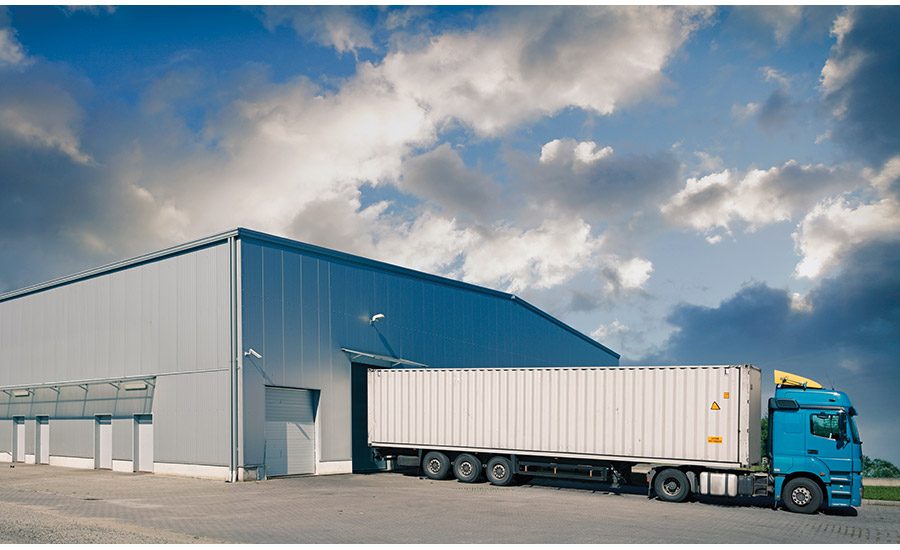Making the Uncertain Certain in the Adhesives and Sealants Supply Chain
How supply chains can safeguard against inevitable future uncertainties.




The convergence of social and demographic trends, consumer behavior and new technologies like the blockchain, mobility, and various facets of “the cloud” are continually re-shaping mission-critical business areas across industries. The supply chain is no exception.
“While historically successful supply chains have managed risk and were resilient when faced with adversity, the operational climate rife with innovation and disruption has changed, and ‘rolling with the punches’ and adhering to the status quo is no longer viable; in fact, doing so is a death knell,” says Irfan A. Khan, CEO of Bristlecone.
This ominous and stern warning from Khan is well-honed, given his pedigree as a marketplace change agent involved with driving business transformation and driving customer-centric turnaround growth strategies in a multitude of environments.
Mitigating Uncertanties
According to Khan, companies should explore ways that they can safeguard against inevitable future uncertainties. “For starters, it’s important to understand that today’s marketplace disruption extends far beyond systems or technology; it’s an overarching paradigm shift … holistic, comprehensive changes that touch every single aspect of an operation—be it internal or external,” he says. “To succeed in this volatile environment and even turn adversity into opportunity, turn to one key area that’s chronically overlooked: the supply chain. Not only do they need to be more resilient, modern supply chains need to be ‘antifragile’ in order to sustain evolving cash flows and ensure tomorrow’s revenues.”
Antifragility, a term coined by risk analyst Nassim Taleb, is the idea that, rather than try to simply prevent or survive unexpected and unpredictable events—called black swans—organizations need to implement systems and strategies so they can benefit from these disruptions. In so doing, they will be in a better position to move ahead of the competition. Put another way, it’s not so much survival of the fittest as it is market-leading success for the cleverest.
According to Taleb, a black swan has three identifying attributes. “First, it is an outlier, as it lies outside the realm of regular expectations, because nothing in the past can convincingly point to its possibility. Second, it carries an extreme impact... Third, in spite of its outlier status, human nature makes us concoct explanations for its occurrence after the fact, making it explainable and predictable.” These concepts cover everything from extreme weather events and environmental disasters to political upheaval and unexpected economic drops.
Expanding on Taleb’s notion of antifragility, Khan has introduced the extrapolated concept of “customer-centric antifragility” to better help organizations achieve the truest form of antifragility and, in turn, better ensure that their organizations succeed. “Systems are fragile when organizations are unprepared to handle changing conditions,” Khan says. “We can’t predict these major shocks, but we can work to reduce the fragility within systems. Customer-centric antifragility, specifically, will not only prepare your supply chain for when—not if—a disaster occurs, it will also prepare your supply chain for a future we know will inevitably be uncertain.
“Customer-centric antifragility is the idea that, rather than simply preventing or surviving an unexpected and unpredictable event, companies need to implement systems and strategies that minimize the impact on their customers while enabling the business to actually benefit from those same disruptions,” Khan says. “Doing so facilitates a deeper affinity with customers while also setting the business apart from its competition. If an organization maintains a customer-centric approach with its antifragile systems, the business will reap the rewards because there is no greater way to build and fortify a brand than through increased trust.”
Proactive Solutions
Khan additionally provides strategies to help supply chain professionals and business leaders achieve true antifragility. These strategies are founded on his belief that those who are the most proactive will stand the best chance of reaching the kind of customer-centric antifragility that makes a real impact.
“Instead of adopting a defensive posture or always being reactive, we need to stay on the offensive. It’s a daily race,” he says. Following are five approaches that Khan feels are crucial to developing an antifragile system and maintaining the mindset for success in supply chain innovation:
- Stop trying to achieve resilience; be resilient. It’s what sets leaders apart.
- Seeing the certainty in complexity will provide clarity and focus.
- Compete against yourself; don’t worry about what your competitors are doing.
- Have evolving goals to keep up with ever-evolving technology, best practices and operations; don’t get stagnant.
- Only settle for perfection, which is as fleeting as it is elusive; maintaining it requires constant effort, constant improvement, and constantly staying on the offensive.
In the spirit of “persistent proactivity” that Khan advocates, his company has developed and launched an antifragility index that helps organizations measure and predict supply chain vulnerabilities and operational readiness. “Instead of your system being exposed by disruptive events, you can perform the analysis in advance and be prepared for when the system shocks actually come,” he says.
And, according to Khan, those shocks will surely come. However, the steps shared here will help lay the foundation for a value network that thrives during times of uncertainty. As Khan himself urges, the entire industry must remain proactive and vigilant to continually evolve supply chains in order to succeed in our unsure, ever-changing world.
As the executive editor and producer of “The Luxe List International News Syndicate,” Merilee Kern spotlights noteworthy marketplace change makers, movers, and shakers. For more information, visit www.theluxelist.com. Bristlecone can be found online at www.bcone.com.
Looking for a reprint of this article?
From high-res PDFs to custom plaques, order your copy today!










